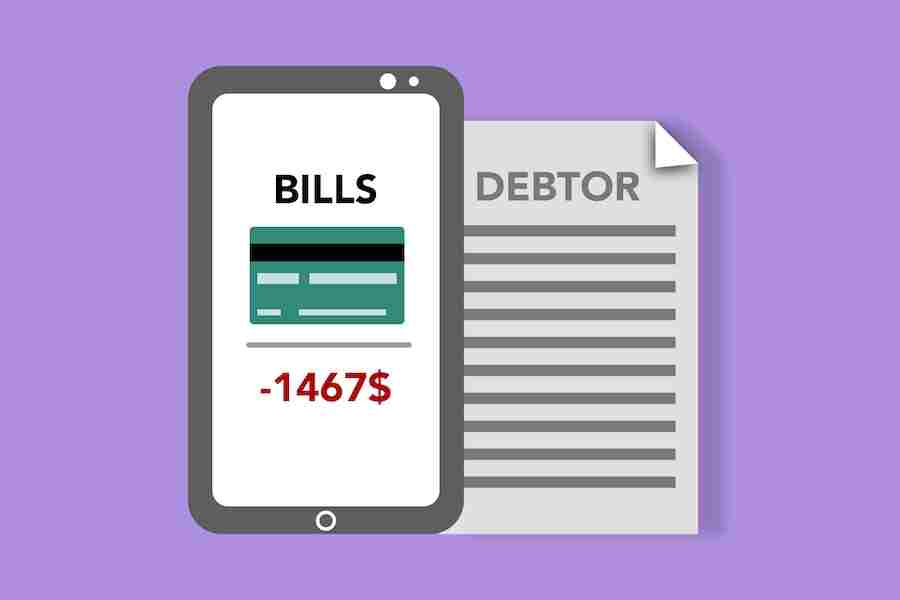In today’s world most people rely heavily on their cellphones. However when money is tight, your phone bill may end up being delayed or go unpaid entirely. While it can be tempting to let your mobile payments slide, doing so can unleash serious financial consequences.
This comprehensive guide will outline exactly what can happen if you don’t pay your phone bill, key steps to take, and how to avoid major damage.
Overview of Potential Effects
Missing payments on your mobile bill triggers a chain reaction of effects including
- Phone service suspended
- Sent to collections agency
- Credit score plummets
- Legal action and lawsuits
- Continued owing of phone balance
- Wage garnishment
- Bank account or asset seizure
The results can be severe and long lasting. Your access to phone service, credit, wages, and finances will all take major hits that can last for years.
What Typically Happens at Each Stage
When first missing payments, you’ll get notifications from your provider. Here’s the usual timeline:
1-30 days late: Receive bill reminders via calls, texts, letters. No service impact yet.
31-60 days late: Cell service suspended pending payment. Late fees added.
60-90 days late: Account sent to collections agency. Credit score damage begins.
90+ days late: Cell service cancelled involuntarily. Debt charged off. Legal action can start.
As more time passes, the effects escalate. Acting quickly is vital.
5 Major Consequences of Not Paying Your Phone Bill
Knowing the key repercussions can give you the motivation needed to address any cell payment issues. Major outcomes include:
-
Lose cell service – Non-payment quickly leads to service suspension, restricting calls, texts, data.
-
Hurt credit – Unpaid accounts get sent to collections within a few months, damaging your credit score.
-
Owed device balance – Even with service cut off, device financing balances remain and will need repayment.
-
Legal action – Phone companies can take legal steps like suing you to collect on the debt.
-
Wage garnishment – If sued and they win a judgment, they can garnish your wages to collect what you owe.
These effects can seriously disrupt many aspects of your life, so it’s critical to avoid them.
Answering Common Questions
Understanding the specifics will empower you to make the right choices if facing cell payment struggles. Here are some key questions answered:
What happens if I cancel service without paying?
Cancelling doesn’t erase what you owe. Remaining device balances and fees will still need payment.
Can they really garnish my wages for a phone bill?
Yes, if they sue you and obtain a court judgment, wage garnishment is possible to collect the debt.
Will unpaid cell bills show on my credit reports?
Definitely. Missed payments will significantly lower your credit score and remain on your credit history for 7 years.
Can my bank accounts or assets be seized over unpaid phone bills?
Potentially yes, if large amounts are owed. They can pursue bank account levies or property liens.
If I pay late fees/balance owed, will my service be restored?
Yes, after paying to get your account current, they will reactivate your cell service.
Tips to Avoid the Worst Fallout
If struggling with cell bills, all is not lost. Here are some tips to mitigate the effects:
-
Contact your provider immediately upon falling behind to discuss options.
-
Prioritize phone payments to prevent service loss. Delay less vital debts if needed.
-
Request due date changes to align bill with your pay schedule.
-
Seek a lower-cost phone plan or prepaid options to lower costs.
-
Use free wifi calling/texting apps when possible to minimize overages.
-
Consider a side gig to bring in extra income for bills.
-
Consult credit counseling agencies for help managing phone/other debts.
Acting quickly and proactively is key to avoiding a downward spiral.
Take Control of Your Mobile Phone Payments
Letting cell phone bills go unpaid can unleash severe consequences that upend your finances, credit, wages and more. But there are options to avoid the worst effects. Staying current on payments is crucial – even if that means putting phones ahead of other bills in the short term. With proactive steps and seeking help early, you can take back control and stop mobile payment issues from escalating into lasting damage.

A debt collector is chasing me for mobile phone debt. What can I do?
Mobile phone debt often goes to a debt collection agency.
Do not ignore their letters.
Offer to pay what you owe at a rate you can afford.
These agents do not have any special powers.
I made a complaint about the debt they are chasing. What should I do?
Tell them:
- You do not agree you owe this money
- You have complained to your provider
- They need to go back to the provider
Complain to Ofcom if you are unhappy with how the debt collection agency treats you.
